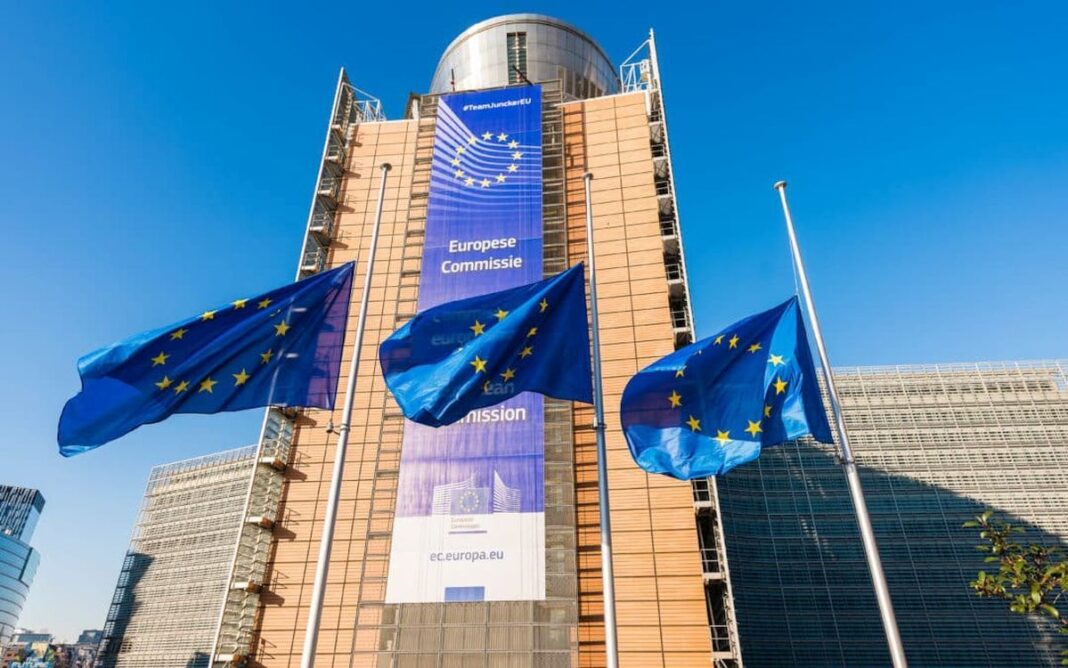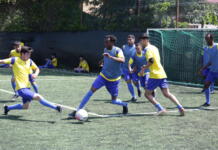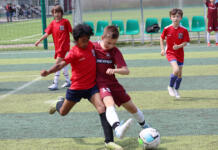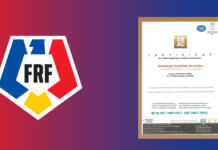The President of the Romanian Football Federation (FRF), Răzvan Burleanu, held a meeting with Roxana Mînzatu, Executive Vice-President of the European Commission. The main focus of the discussion was the preservation and development of the European Sport Model – a key pillar in the FRF’s vision of an active, inclusive, and healthy society.
During the meeting, Răzvan Burleanu presented a series of concrete initiatives through which the FRF actively contributes to education through sport – from kindergarten to senior levels. Among the projects mentioned was a proposal currently under discussion with the Ministry of Education, aiming to fund an additional hour of sports, dedicated to football, in all Romanian schools.
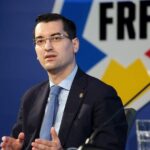 The FRF President also emphasized the Federation’s strong commitment to the development of women’s football, highlighting the decision that all clubs in national leagues must also have teams enrolled in women’s competitions. Currently, the FRF manages 18 national teams across age categories, genders, and skill levels, and is planning the creation of a national team for people with disabilities.
The FRF President also emphasized the Federation’s strong commitment to the development of women’s football, highlighting the decision that all clubs in national leagues must also have teams enrolled in women’s competitions. Currently, the FRF manages 18 national teams across age categories, genders, and skill levels, and is planning the creation of a national team for people with disabilities.
 Roxana Mînzatu expressed her appreciation for the FRF’s activities and pointed out the connections between the Federation’s projects and current priorities on the European Commission’s agenda, such as mental health. A shared interest in accessing European funding—particularly for social projects—was highlighted, and the need for a national dialogue in this direction was suggested, in coordination with the Ministry of Investments and European Projects.
Roxana Mînzatu expressed her appreciation for the FRF’s activities and pointed out the connections between the Federation’s projects and current priorities on the European Commission’s agenda, such as mental health. A shared interest in accessing European funding—particularly for social projects—was highlighted, and the need for a national dialogue in this direction was suggested, in coordination with the Ministry of Investments and European Projects.
Regarding the European Sport Model, both officials reaffirmed their support for the principle of open competitions and for preserving the fundamental values of European sport. The FRF President expressed hope that the agreement signed between UEFA and the European Commission in 2014 would be renewed, while the Executive Vice-President confirmed she would collaborate with European Commissioner Joao Micallef to develop a new strategy in this field.
The meeting concluded with commitments to future collaboration, including potential follow-up discussions in Brussels or Bucharest, and even on the sidelines of major European football events in 2025, such as the UEFA Women’s Euro.


